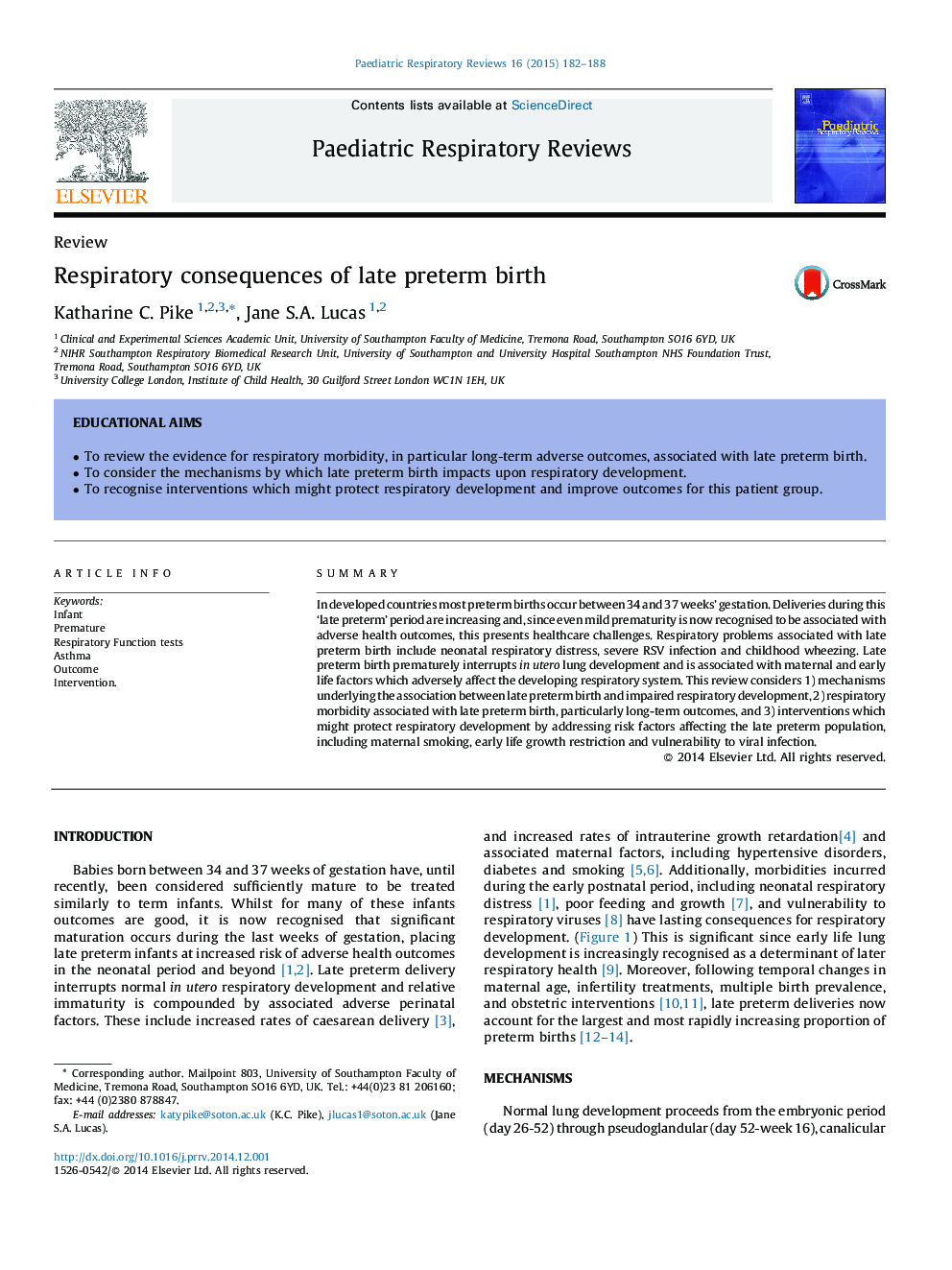| Article ID | Journal | Published Year | Pages | File Type |
|---|---|---|---|---|
| 4170912 | Paediatric Respiratory Reviews | 2015 | 7 Pages |
SummaryIn developed countries most preterm births occur between 34 and 37 weeks’ gestation. Deliveries during this ‘late preterm’ period are increasing and, since even mild prematurity is now recognised to be associated with adverse health outcomes, this presents healthcare challenges. Respiratory problems associated with late preterm birth include neonatal respiratory distress, severe RSV infection and childhood wheezing. Late preterm birth prematurely interrupts in utero lung development and is associated with maternal and early life factors which adversely affect the developing respiratory system. This review considers 1) mechanisms underlying the association between late preterm birth and impaired respiratory development, 2) respiratory morbidity associated with late preterm birth, particularly long-term outcomes, and 3) interventions which might protect respiratory development by addressing risk factors affecting the late preterm population, including maternal smoking, early life growth restriction and vulnerability to viral infection.
